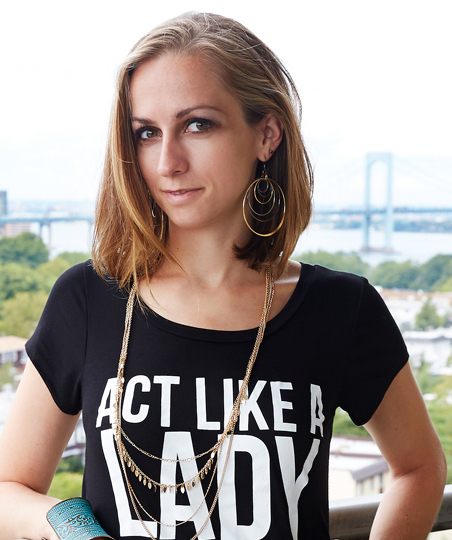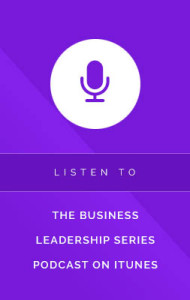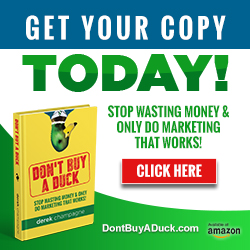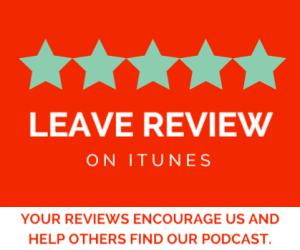BLS interview with Suzanne Paulinksi, founder of The Rock/Star Advocate, Part 3

Derek continues his interview with Suzanne Paulinski, founder of The Rock/Star Advocate. Suzanne talks with our listeners about staying in your lane, not beating yourself up comparing what others are doing, and how to meet your customers where they are so that they will engage with your product in a meaningful way.
Learn more at www.therockstaradvocate.com
Derek: So I know that you’re in a different business than a lot of us, than a lot of our listeners, but I still think it’s applicable. Tell me about your e-books, are those yours? That’s your copy, your content?
Suzanne: Yes, yes. So what I did, was I created The Rockstar Summit, which launched a couple of weeks ago, the first week in April and it was a three-day virtual music conference. It was an idea I had after speaking at some amazing conferences in person but I myself, am an introvert. I can get up and speak in front of hundreds of people but put me in a room where everyone’s just kind of coming up to me and I just want to crawl in a hole. I know for a lot of my clients, that’s how it is. They drag themselves to these conferences and they never know what to say or they get intimidated by the room or there’s alcohol involved and then that makes it – you know, “What’s my limit?” so to speak.
There’s so much to grapple with in those situations, so I thought, “Why don’t I get some of my best friends who are experts in different fields in the industry, to do video?” I did video interviews with them and then I hosted them live on my website. Artists bought tickets, they could ask questions, there was a live Q&A, there was a Facebook group that was open so we could check in and support one another, as they watched the videos on their own time; didn’t have to take off from their two or three day jobs that they might have to work. In doing so, I created these six e-books to go along with all of the different panels that I had. So I created one for finance, one in social media branding, one for legal, contracts and getting all of that stuff in order. One was for self-care and mindset and then the others were for recording and for touring.
So they’re not all up on the site just yet but they are available. I’m getting them up this week on my site but they’re available for sale. All people that came to the summit, got them for free but they’re basically affordable e-books, they’re about 10 to 12 pages each, that have information that you can use but on the flip side, also comes with exercises so that you can figure out, “Well now that I’ve learned the information, how do I actually apply it to me?” Because a lot of the times, you get the information and then you get overwhelmed and then you get paralyzed and then you don’t do anything because you’re so immersed in everything you just learned. So I broke it down into six different sections so that they could learn – maybe they know enough about the legal stuff but they don’t really know how to manage their finances or maybe they’re great on social media but they want to go on tour and they’re not sure how to manage their own tour.
So I kind of broke it down separately so you can kind of pick a la carte. There are exercises in there, like I said to really practice and make sure this is how you’re also going to retain the information, just like we would do in school, you went home and you had homework. So that’s what that is all about and those are the books that I’ve done recently and then I also offer – like I said, free templates as well and free e-books that are up on the site; that just offer basic understanding of the industry. So you can get started on your own, in case you don’t have a budget to work with.
Derek: I want to talk about the platform you use because it really stands out to me. I talk sometimes to groups about meeting your customers where they are and anticipating their needs. Understanding their emotional connections, understanding what’s important to them and rather than making them come to you, meet them where they are. So for you to understand that maybe they’re introverts and their preferred learning style might be a little bit different. It might be a little bit more incognito but yet they’re very curious and these artists are brilliant people that want to learn but they just don’t like the platforms that have been provided them.
So for you to set up these Facebook groups and the videos and all of that, I really like that. I talk sometimes to people, about build tools that fit what you need and don’t make everybody come and fit into your tools instead because they’re not going to. Then you’re going to say, “Why didn’t this work?” so on a whole separate conversation, what you’re doing is great because you’re actually making – you’re understanding your customers and anticipating their needs and then building tools that are appropriate for the campaign, so that they’re most likely to engage. I think that’s really important for myself and for our listeners to remember, whenever we’re testing different campaigns, to see what does and what doesn’t work.
Suzanne: Thank you and yes, to be honest again, it’s like – this my almost 15th year in the industry – and like you said, I’m doing that now and it’s great and it’s working for me. The feedback was amazing and I’ll be running The Rockstar Summit again this summer but it didn’t always happen that way and I was, for the longest time, creating products where I was like, “Well this is how you should do it and this is where you should be.” Again, using that word “should” and then artists were – well when I first started out with this company, I was – “Let’s do therapy sessions and let’s really get down to why you’re depressed or why”- and I was trying to shove therapy sessions down their throats. It was like, yes I can help in that way and yes, you can see results but maybe that’s not how you want to be approached; most artists don’t and therapy is still taboo.
So then it was like, again, I had to go through those failures and go through that feedback from clients being like, “Yeah, that’s great but I wouldn’t buy it that way.” Getting off my own high horse to go and ask former clients, “Hey, if I approached you with this service, would you use it and if not, why?” And a lot of them would say, “Because you called it therapy and that’s weird and I don’t want to do it.” It was like, “Okay, so what if I said we’re going to revamp your social media and in – within it, we’re going to work on your mindset and how to connect with,” or “Oh yeah, that sounds awesome, yeah cool, sign me up.” So learning, like you said, where they are and how they want to be approached, it’s something that I had to learn. So like you said, those failures are needed along the way, I didn’t just get here.
Derek: I think something else interesting, is that you ask them and often times I’ll hear, “I’m not sure what the customer wants, they’re not responding” and the simple, simple often overlooked answer is, ask them. Show them and ask them and they won’t always tell you directly but sometimes they do, wow, imagine that. Get feedback from them and then adjust it and then make something they want and when we get protective of our products and our babies and we sometimes need to be a little bit vulnerable. Within reason, I mean, we need passion and we need to believe in what we’re doing but we need feedback from the market and from our target base, I think it’s very important. It’s crucial and we need to be able to take that- have a little bit of humility whenever we put it out there, just be willing to make some adjustments. I’ll tell you that music is very much like that, in my background with music, when you put art out there and it gets ripped apart, that’s tough.
Suzanne: Wow, absolutely and that’s what I tell my clients all the time. One of them had recently asked me, “What merch should I create? I’m about to go on tour and do I do t shirts? Do I do keychains?” and I said, “Go on Facebook right now. You have a direct connection to your fans right now, go ask them.” You almost feel like everything has to be unveiled, everything has to be a surprise. It really doesn’t, you can let them in on the process, it’s okay.
Derek: Can you give me any examples of artists or of projects that you’ve seen where they’ve done a good job of asking and gotten feedback from their fan base and kind of got a response that way?
Suzanne: Some great artists on Instagram that I have been following, that are really great in asking – I’m blanking out on names, I’m just looking it up – Gina Cutillo, she’s a great artist. She’s now a friend of mine and we’ve done a couple of conferences together. Gina Cutillo had found on Instagram and she was another one, just asking for feedback, “Hey guys, I’m about to put out my album, which artwork do you like the best?”; “Hey, I’m going to set up my next music video, which single should be next?” She does a lot of videos, she does a lot of questions and makes it like a fun game for her artists.
Another one is a client of mine, Monte Mader, you can find her on Monte Mader Music. She was another one who was asking me about the crowdfunding and actually her crowdfunding is going phenomenally right now. She’s another one that really empowers her fans and checks in on them, “How are you feeling today? What music could get you going right now?” and she uses that. She thinks about that and yes, you don’t want fans to dictate the music that you create or if you’re a business person, dictate the products that you make but you want to at least make sure you’re on the same page.
Derek: Right, they’re the ones who are going to consume it. Again, you don’t want to sell out but you also want to make sure that you can make adjustments that make it as enjoyable for them, as enjoyable experience as can be. So what’s next for you?
Suzanne: Well, I’m really excited about The Rockstar Summit, like I said, it went really well. The experts that were involved loved being able to do it in their pajamas and not having to fly out and do a conference. So that format worked really well and I’m very excited to run it again this summer. I’m also working on a planner, that I hope to have out by end of June, early July hopefully. Another college friend of mine, she’s a design engineer, Alyssa Jackson and she and I are putting together a life planner specifically for musicians. I’m very OCD with my organizational skills and keeping everything together and categorized. A lot of my Rock sources that I have up there are spreadsheets, I’m a big fan of spreadsheets.
So she and I created this planner, where – yes okay, you have other planners out there that kind of walk you through keeping your calendar and appointments and everything like that but when it comes to being a musician, there are just a lot of other things that you have to keep in mind when doing that work/life balance, which is something I know you speak a lot about of in your podcasts and whatnot. It’s kind of how do you juggle all these different hats of maybe being your own PR person, being your own manager at times. Being your own booking agent, how do you manage all that.
So we’ve created some really fun exercises and templates in this book. Where it’s part calendar but part organizational tool and it’s a physical book because I truly believe we need – we still need that pen to paper feeling and so that’s going to be my next really big thing. Which is getting into creating actual products that artists can use to help them and then keeping along the same path of – you know, I love doing podcasts like this, speaking at music conferences, it is still a big favorite of mine. So continuing to do that in the coming months is really what I’ve got coming up.
Derek: So my question is, how do you stay focused and know when what you’re doing is going to give addition to the value for your life and satisfaction but also help you to continue to build this amazing business that you’re growing?
Suzanne: It is, I keep a notebook with me, it’s my – just my safety, my security blanket. Every day when I wake up and every night before I go to bed, I write down what my goals are for the day; I try to keep it to three main goals and then I look at those goals and like up on my wall by my desk, I have my ‘why’. Like my mission, like why I created The Rockstar Advocate, what I want to do and so I literally just force myself to sit there. And I say, “Okay, what do I want to accomplish tomorrow? Is that still in line with my ‘why’?” I’m just constantly checking back in with myself and that’s part of the self-care and the mindset work. Is to just constantly check back in, reflecting, tweaking because you might have a great idea or you met somebody today and they have a great idea. It doesn’t mean it’s not great but if it’s going to distract you or take you away from your main purpose, maybe it’s not right for right now.
I used to get very distracted by shiny things and then a month or two would go by and I’d be like, “Oh, wait a minute, I was really wanting to get this done and it’s not done yet.” So again, coming back to that main purpose and saying – it makes decision making very easy for me because so many great things come up but I say, “If this is tied to my ‘why’, then it’s a sure fire yes. If it’s not, then I really have to debate, do I have time for it or is it worth getting distracted from my main mission?” So that’s really how I stay on course. Is just every morning and every night, it’s the first and last thing I do, is to check back in with where I am in my journey.
Derek: I like the daily reminder. When we build marketing plans, we have three rules that we have. Rule number 1; How does this decision reflect our line with the brand’s core values?. Number 2; What’s going to be the relevancy of this decision we’re about to make, to each of our target segments? Is it going to affect them positively or negatively? Is it going to bring value to them? and Number 3; How is the decision going to add value to our existing campaign that’s going to meet our objectives. And if it doesn’t fit with the three of these things, then we need to recognize it as a distraction or as a shiny object. It doesn’t mean we can’t do it but just please recognize that it is a change and I love your daily reminder.
That’s so great because again, especially in a creative business, which we’re both in. Especially when there’s all these new shiny objects and tools and especially with the types of clients or clientele you work with, it’s very easy to get excited and build on and get distractions that- Again, sometimes are good and it’s good to have distractions but that can derail your whole overarching objective that you want to reach. So is there anything else that you want to share with us today? As a young entrepreneur that has worked her way to where you are today? What advice would you give someone out there that is either struggling with their product or their service or is kind of at a crossroads of going in the direction of where they want to launch a business?
Suzanne: Yes, well first of all, thank you so much because I love what you do and I love listening to your podcasts, you have such a great message. So I would say, listen to more of these podcasts, listen to more of Business Leadership Series. What I would also say is, go make mistakes. Like go get your hands dirty, I mean, I was top honors student, always straight A’s in school and you take that mindset and you think, “Well, that’s how it’s going to work in the real world,” then you know – I think we need to teach the youth that it – more- get dirty, make more mistakes, go back to the drawing board. It’s that fear of- I worked so hard to get into the music industry and at 22, I left what I thought I had worked my whole high school career towards. And that was so frightening and I had to really learn, I can come back. You can come back, you can re-tweak it, you can invent your own job.
You can – whether you’re going to be an entrepreneur or work for somebody else, you can always change your mind and it’s okay. It’s okay to be wrong, that really – as soon as you accept that, you really start to make more progress. To really – when you’re struggling and hitting a wall, go take a nap, go out for a walk. Go call a relative that you like that you haven’t called in a while, like go step away and my mom always used to tell me that and it took a while before I trusted it. That it’s okay to step back and then you come back with a clear mindset and you’re just like, “Whoa, how did I not see what I need to fit?” You – it’s amazing how a walk around the block can completely – utterly- you know, change your perspective when you come back. So don’t be afraid – “Well, somebody only got two hours of sleep and if I stop to watch a TV show right now, it means I don’t want it as badly.” No, that’s not how it works, stay in your lane.
Derek: That’s great, thank you so much Suzanne, I really appreciate you being our guest. I wanted to have you on for a while here. Love what you’re doing and I love your tagline, that you’re The Rockstar Advocate and you have, “Be the rock for your future star.” And I think that’s really powerful and me knowing as many musicians as I have, that are chasing the dream, that just is so appropriate for giving them the beacon and the right guidance that they need. So that’s really powerful, therockstaradvocate.com, you can learn more about Suzanne and what she’s doing. Suzanne, thanks again for being our guest and I look forward to seeing all the great things that you do, in the coming years.
Suzanne: Thank you so much, it’s been a real honor. Thanks for having me.



